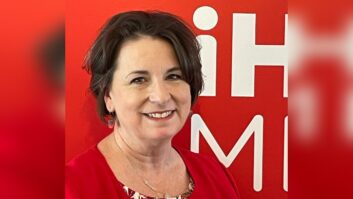In most endeavors, like banking, manufacturing or pharmaceuticals, a reduction in regulatory force would be greeted with elation. Not so for the tenants of the RF spectrum.
These pictures, while adorable, don�t quite cut it as a welcoming committee for those who visit the commission�s headquarters. When the FCC leadership moved to save 2.5 percent of its operating expenses by closing some field offices, the response was instead great despondency and many petitions to keep the offices open.

The process was the same one used in the whole of the government and industry: Hire a consultant to advise you to do what it is you want to do. It�s not that leadership doesn�t believe they don�t know the right course; they simply need a consultant to validate the decision and take the heat if it turns ugly.
STANDARD SOLUTIONS
Any good broadcast engineer knows that, when it comes to big things like link budgets and AM directional array design and tune-ups, you do your own design and then hire a consultant to hopefully give you close to what you calculated. Sure, they will throw in more connector loss and lower S/N to fudge a bit more overhead into the system in case you only use low quality, rusty components, but that�s another reason to hire a consultant. They have the courage to ask for more than you need under the guidelines of �good engineering practice.�
So when the consultants advised a reduction in field offices � not an outright closure of all of them as a way to recoup that $9 million needed for the 2.5 percent savings but to something that leaves a few field offices and �Tiger Teams�� � they were simply advising a standard solution.
Trust me, I�ve some experience with these problems, and my go-to solution always incorporates Tiger Teams. They are a thing of magic. By definition, they are the best of the best, fully empowered to do whatever needs to be done. The whole world would be Tiger Teams if only there were that many �best of the best� and all our problems were big enough to warrant them.
So, the consultants did the consultant thing:� interviewed a bunch of FCC field engineers, asked them what they did, minute by minute. They probably thought the calls, from broadcast engineers, public safety radio managers and the like, were simply odd interruptions in flow of the day for these commission employees. Field engineers, of course, are there to catch the bad guys violating rules � and usually not-that-big-of-a-deal rules. Things like EAS and kilowatt CB amplifiers or the overuse of �emergency non-directional daytime � Friday night football power.� Really, a Tiger Team can drop out of a black helicopter when there�s some clueless kid keying up on an aircraft frequency at the end of a major runway with some stolen HT they got at the pawn shop.
Nine million dollars. The cost of flying a B-2A Spirit Stealth Bomber for 53 hours. Or 11 cruise missiles. There are a lot of things government does that can be questioned, but there are also a large number of things that work pretty well. In a world where spectrum is sold for billions, it seems silly to take such a bargain-basement approach when it comes to keeping it clean.
I doubt I can get a Tiger Team to come in to find those cheap offshore Wi-Fi access-points in that warehouse on the edge of town, which takes out the SFN and my Garmin.
I doubt I can get a Tiger Team to figure out how to comply with the latest confusing requirement from the commission.
It�s instructive to go to FCC headquarters in Washington. There is a double glass door with a tiny lobby, a board featuring children�s drawings for some charity purpose, and that�s it. No one to say hello to, no literature, no history of radio. Without an appointment to see someone, you shouldn�t be there. It is the least exciting and most isolated government entity you can imagine.
It�s not good when the FCC lawyers win out over the FCC engineers.
Fortunately they are located close to the D.C. fish market. I suggest that if you go to see the FCC, you walk another 2,000 feet to where you can get some great clam chowder, shrimp, maybe a lobster, and look out over the water at the Washington that inspires � and matters.
The Wandering Engineer is an industry stalwart who has been in broadcasting since the days of Marconi and Tesla. He gives his thoughts on the current state of broadcast engineering and the broadcast engineer.












